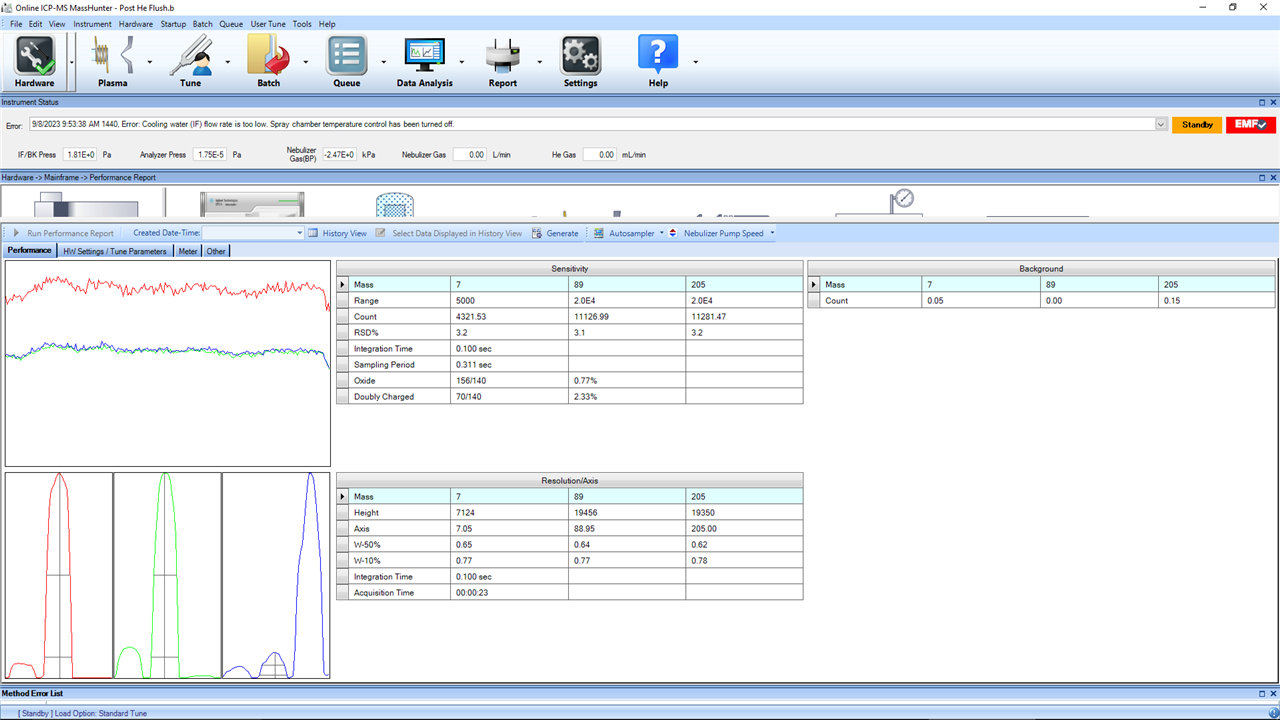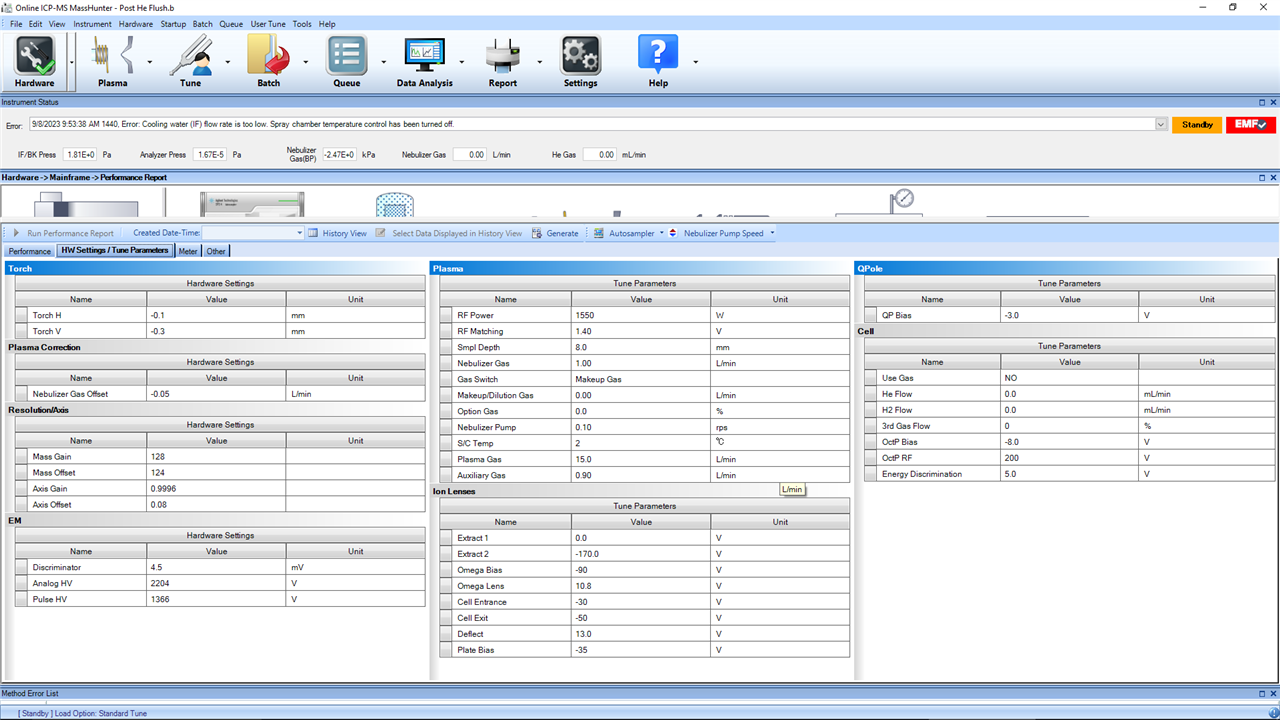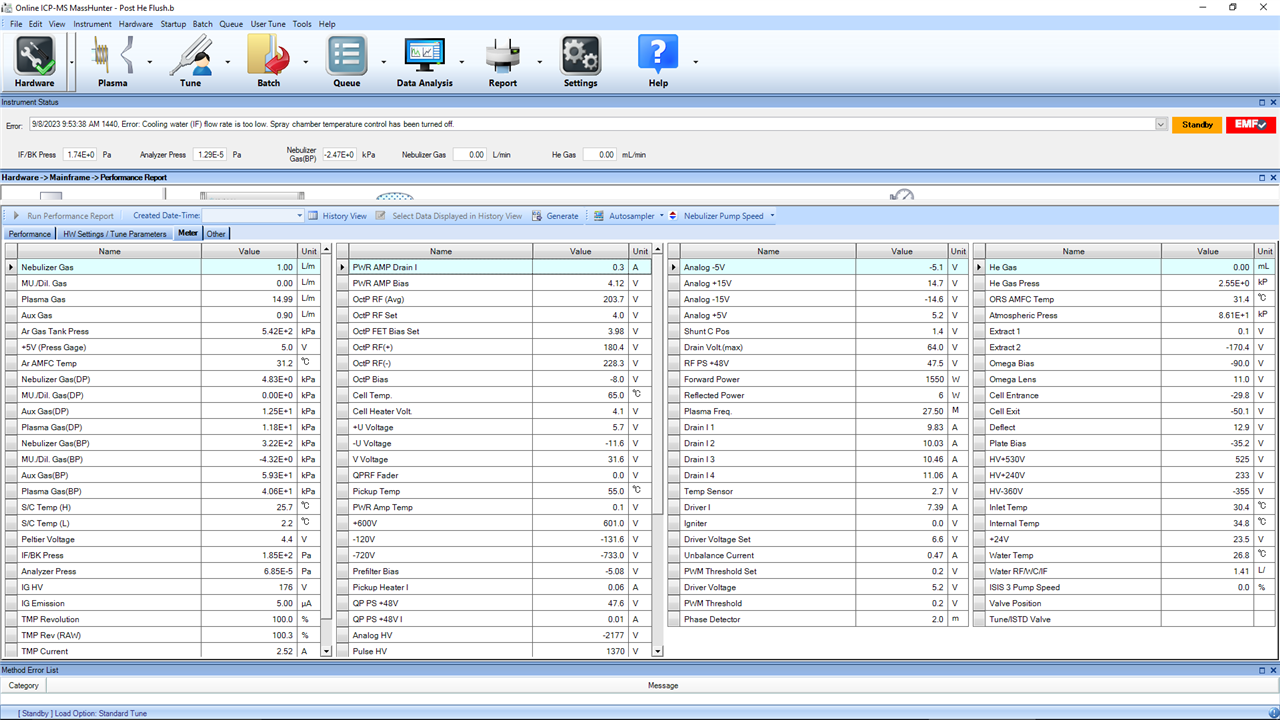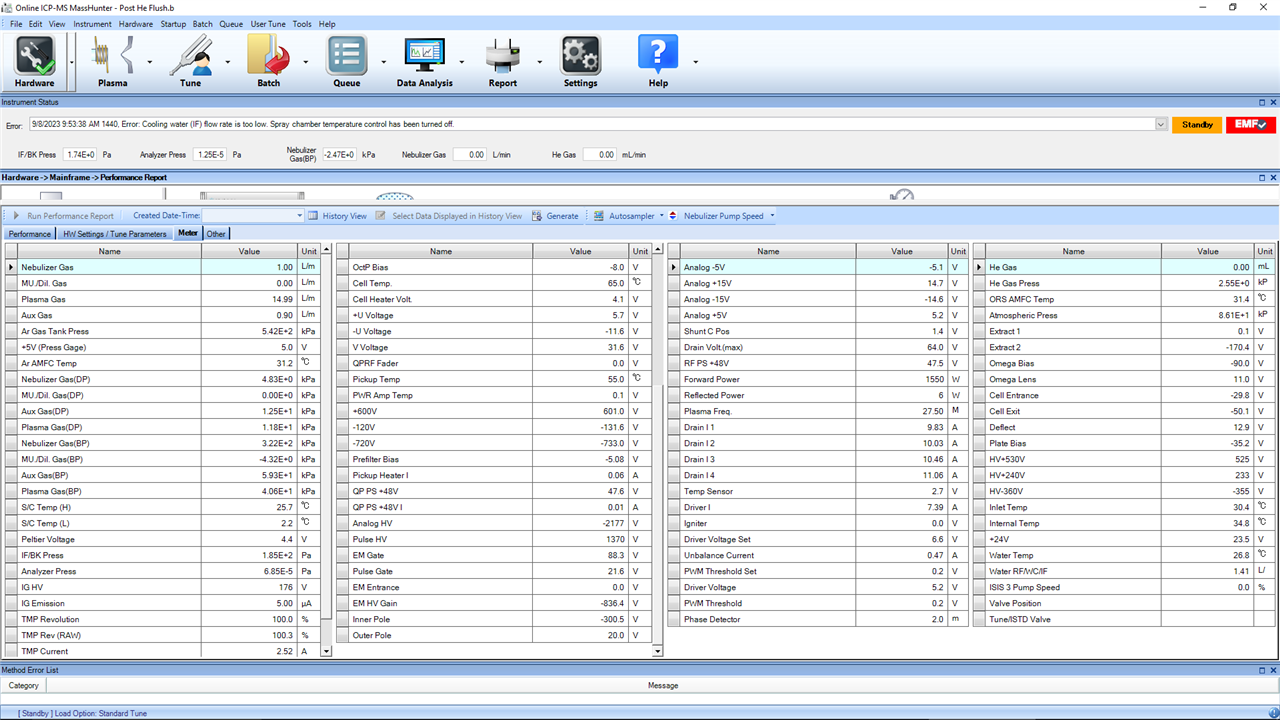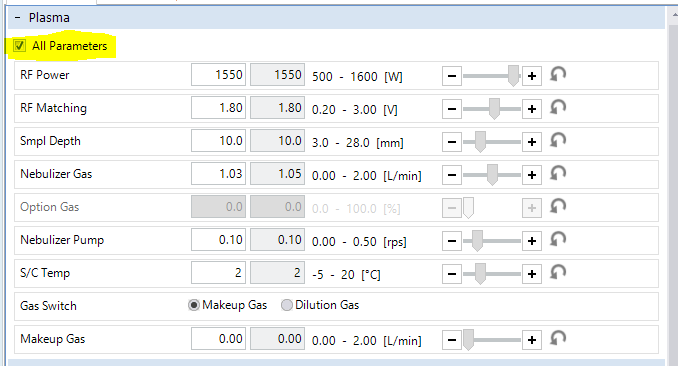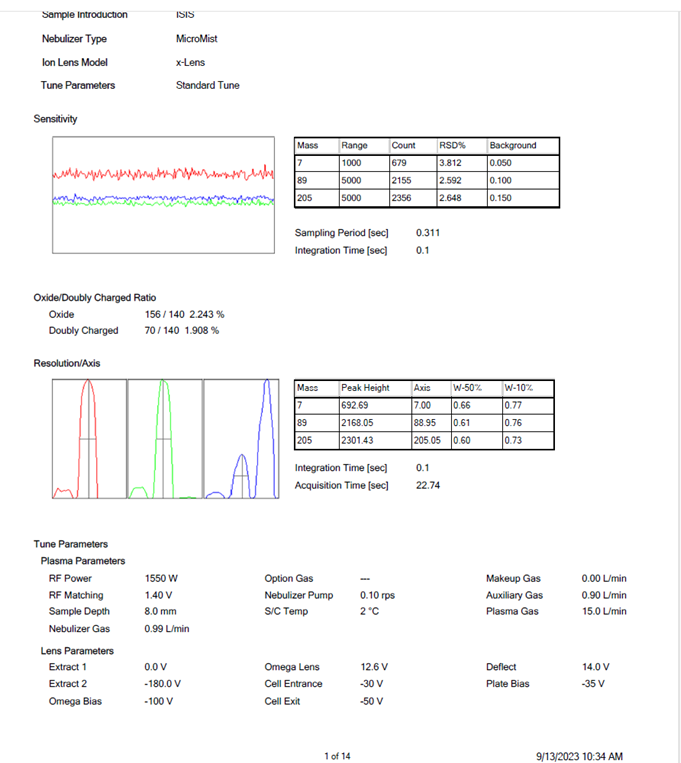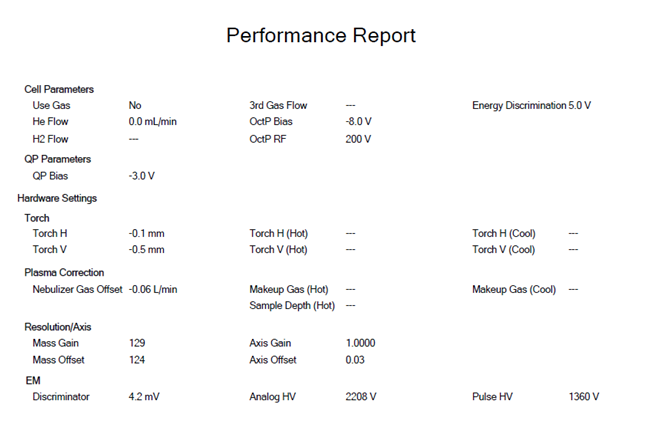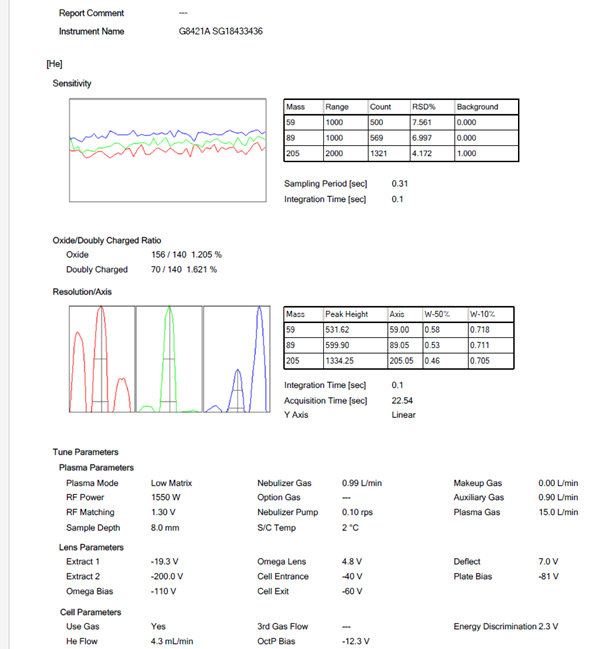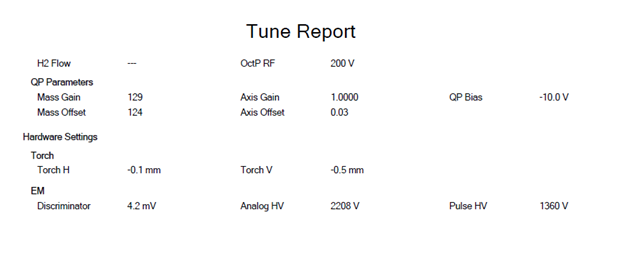I have inherited a 7800 from a new job, when I run the standard method for the technique all of the counts come out relatively similar. Running a blank and then a calibration standard returns the same results, approximately. The instrument has been cleaned from the lens all the way back to replacing the sampling probe in the last couple of days. However, I still get relatively the same number for CPS of every element. I attempted to check each of our solutions via the signal monitor, only paying attention to Li. When I run the blank it returns a count of ~150 for Li and when I run the standard I get ~250-300 for Li, using the signal monitor. Along with cleaning everything, I also switched out all the standards for ones ran on a 7850 that came back fine on that instrument. I replaced the ISIS 3 the other day because it wasn't drawing up correctly and I just noticed that an error: 2607 Warning Y-axis movement disabled due to a partially closed top cover today. I am trying to figure out why this instrument returns the same values for all elements. They have not run this instrument for a couple of months and last batch I see, seems to have worked fine. Any suggestions or ideas would be helpful, I appreciate it.

